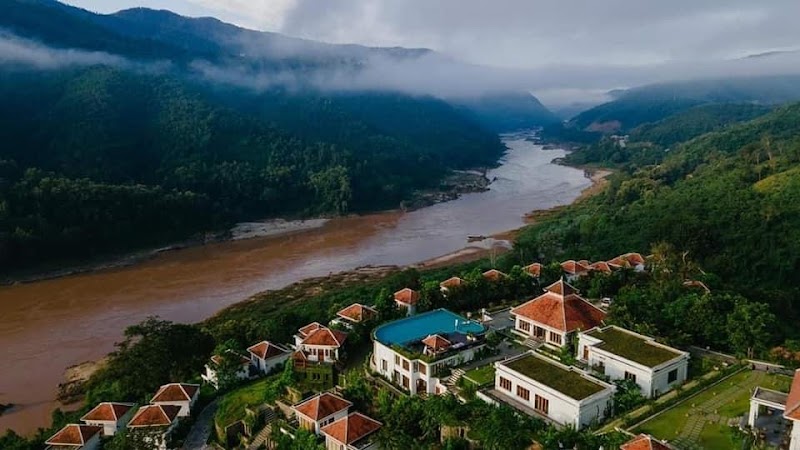
Thriving Green: Exploring the Nan Organic Festival in Northern Thailand
The Nan Organic Festival in Thailand’s Nan Province offers a lively intersection of culture, sustainability, and mountain adventure. Experience organic farming firsthand amid forest trails and community workshops designed to inspire both casual visitors and seasoned nature enthusiasts.
Footwear with Grip
Wear shoes that handle muddy and uneven terrain to stay safe and comfortable throughout the festival trails.
Bring Refillable Water
Hydration stations are limited; carry a reusable water bottle to stay hydrated during hiking and market browsing.
Arrive Early
Beat the midday heat and enjoy calmer trails by arriving early; mornings offer cooler air and better photographic light.
Pack Light Layers
Mountain weather shifts quickly—dress in layers to adapt from chilly mornings to warmer afternoons.
Thriving Green: Exploring the Nan Organic Festival in Northern Thailand
Every December, the Nan Organic Festival in Nan Province emerges as a vibrant celebration of sustainable living and local culture, set against the rugged charm of northern Thailand. Visitors find themselves immersed in a practical yet lively showcase where organic farming isn’t just an ideal but a way of life fiercely guarded by the mountain communities. Beyond the vivid stalls of fresh produce and handmade crafts, the festival routes through terraced fields and forested hills, speaking directly to the senses and inviting an adventurous exploration.
The festival site itself sprawls across natural terraces framed by towering teak and pine trees, their needles whispering with each mountain breeze. This is not a gentle stroll; expect uneven terrain with an elevation change around 150 meters over the main festival trail, approximately 3 kilometers in total length, weaving between plots of thriving vegetables and herbs. The earth feels alive here, participating boldly in the event—wet soil clings to boots after a rain, and the air carries the sharp scent of rich compost, daring visitors to engage deeper with the roots beneath their feet.
Beyond the festival’s organic goods market, workshops offer actionable lessons: how to cultivate without chemicals, preserve seeds, and cook using local herbs. These sessions add a meaningful layer to the experience, positioning the festival as a hands-on challenge to rethink modern consumption and production.
For the practical adventurer, the terrain is both a gift and a test. Good footwear with solid traction is essential to navigate slick mud and uneven stone paths. Hydration stations are scattered but not unlimited—packing water is wise, particularly with the region’s tropical sun pressing hard during mid-morning hikes. Early arrival grants cooler air and softer light, perfect for adjusting to the swelling energy of the day.
The Nan Organic Festival isn’t just an event; it’s a dynamic encounter with an environment that asserts itself calmly yet insistently. Visitors engage with locals who balance tradition and innovation, making this a rare opportunity to witness sustainability in motion, in a landscape that remains fiercely itself through shifting seasons and growing crowds. This adventure offers more than scenic views—it invites you to step inside a living model of resilience and respect between human and wild.
Nearby Trips
All Adventures
Boat Charters
Water Activities
Adventures near Nan, Nan Province, Thailand
Discover the unique and memorable adventures that make Nan, Nan Province, Thailand special.
Frequently Asked Questions
What is the main attraction of the Nan Organic Festival?
The festival highlights sustainable farming methods with fresh organic produce, local crafts, and educational workshops, giving visitors a practical look into traditional agriculture and eco-friendly living.
Are the trails suitable for families with children?
While the festival trails are moderate and accessible, some sections feature uneven terrain and potential mud from recent rain, so supervision and proper footwear are recommended for young children.
Can I buy organic products directly from farmers at the festival?
Yes, most goods at the festival come straight from local growers, offering an authentic farm-to-table experience with produce, herbs, and handmade foods.
Are there guided tours or activities during the festival?
Several workshops and demonstrations on organic farming, seed preservation, and cooking take place daily. Although not all are guided hikes, local experts offer rich insights at activity stations.
Is the festival accessible by public transport?
Nan town serves as the primary access point, with local buses and songthaews connecting visitors to the rural festival venues, though arranging private transport or motorbike rentals is recommended for flexibility.
What wildlife might I encounter around the festival area?
The forested hills harbor native birds like the black-headed bulbul and occasionally muntjac deer. Early mornings are best for spotting wildlife as the area remains relatively undisturbed.
Recommended Gear
Sturdy Hiking Shoes
Protects feet on muddy and rocky paths, offering grip and ankle support.
Reusable Water Bottle
Essential for staying hydrated as water stations are limited around the festival grounds.
Light Rain Jacket
Compact protection against frequent rain showers during the monsoon season.
Sun Hat and Sunscreen
Protection from prolonged sun exposure during December to February’s bright, clear days.
Local Insights
Hidden Gems
- "Viewpoints overlooking terraced rice paddies on the festival's eastern ridge"
- "Small organic home gardens where locals practice age-old farming techniques"
Wildlife
- "Asian koel"
- "Muntjac deer"
- "various butterfly species including the Common Mormon"
History
"Nan province has a long tradition of organic farming tied to Lanna Kingdom practices, with communities preserving ancestral knowledge through sustainable cultivation methods."
